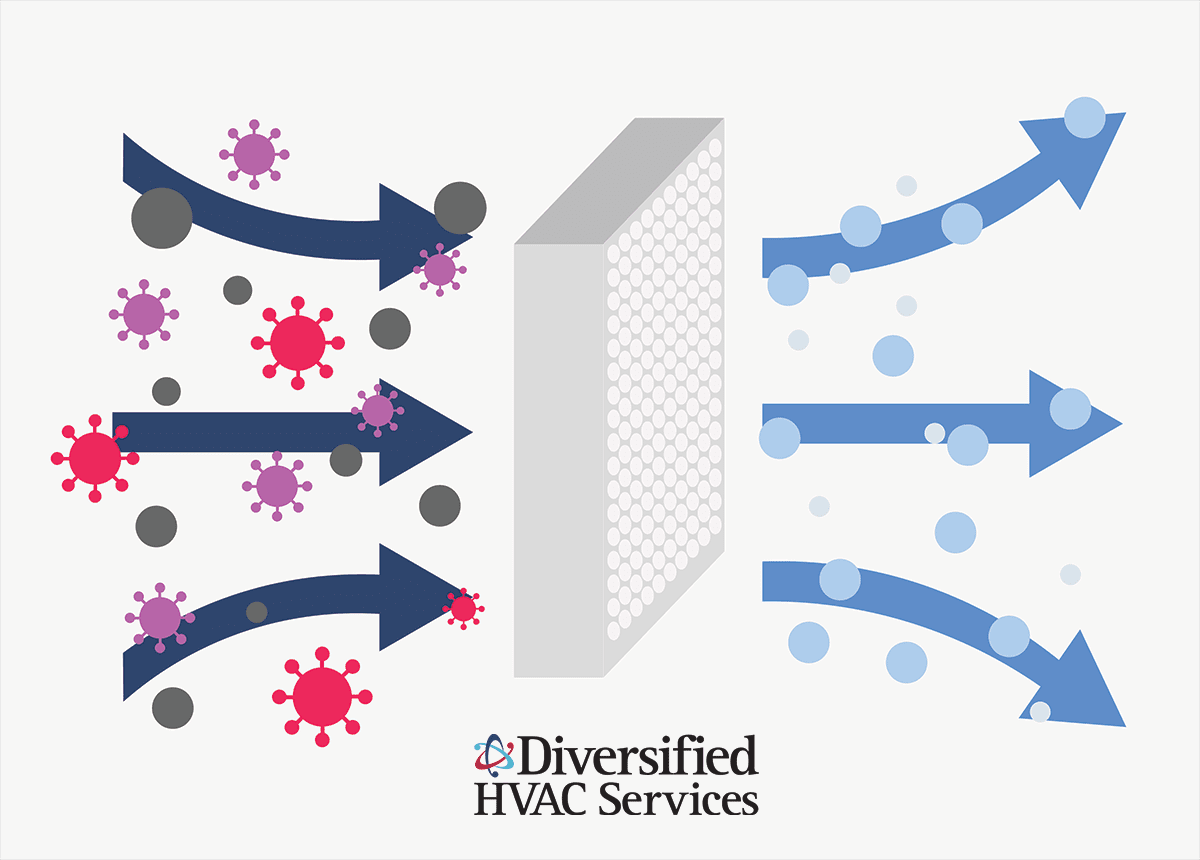Air Filtration Systems for Commercial Spaces: Benefits and Best Practices
Fresh clean air is not a luxury – it’s a necessity in today’s world. Our health, productivity, and overall quality of life all depend on indoor air quality.
Want to learn more about modern types of air filtration systems, how they work, and how to choose the right one for your business? You’ve come to the right place!
The Importance of Air Filtration
Air quality is critical to any commercial space. It directly influences the health and productivity of employees, customers, and visitors. Neglect it, and you may face increased employees with allergies and respiratory problems.
Apart from decreased productivity and increased sick days, it may lead to legal liabilities and a potentially tarnished reputation. Every building owner must constantly run several tests to ensure high air quality.
Among other pollutants, you have to monitor for dust, allergens, mold spores, bacteria, and volatile organic compounds (VOCs). Elevated levels mean that your air filtration system requires maintenance or replacement.
If an air filtration system in your commercial space fails, it’s time to look for options.
Modern Air Filtration Systems
All the solutions that improve indoor air quality work by trapping and removing airborne particles and contaminants. But they do it using different principles.
There are three primary air filtration system types:
- Mechanical filters
- Electronic air purifiers
- Activated carbon filters
Mechanical Filters
These filters capture particles as air is forced through a fine mesh material. They effectively trap airborne pollutants such as dust, pollen, mold spores, and other allergens.
High-Efficiency Particulate Air (HEPA) mechanical filters can remove 99.97% of particles above 0.3 microns in diameter, covering most allergens and many types of bacteria.
Such filters are ideal for environments where allergen control is a priority. However, HEPA filters do not remove gases or odors and can be more expensive to maintain due to the need for regular filter replacements.
Electronic Air Purifiers
Also known as electrostatic precipitators, these purifiers create an electrical field that ionizes air particles. The unit contains oppositely charged plates that remove ionized particles from the circulating air.
This method allows electronic air purifiers to capture smaller particles, including some viruses and smoke particles, that may pass through mechanical filters. These systems can be cleaned and reused, making them cheaper to operate.
However, some downsides exist: electrostatic precipitators are less effective at removing larger particles and can produce trace amounts of ozone, a respiratory irritant.
Activated Carbon Filters
Activated carbon filters remove gases, odors, and volatile organic compounds (VOCs) that are typically not captured by other types of filters. They are made from highly porous material, and their large surface area is ideal for trapping pollutants.
These filters are often used in environments with chemical fumes, strong odors, or high VOC levels, such as beauty salons, manufacturing facilities, or spaces with new carpeting or furniture.
However, activated carbon filters are not designed to remove air particles. To ensure comprehensive air purification, you will need to combine them with another filtration method, such as a HEPA filter.
How To Choose an Air Filtration System for Your Business
Choosing the right air filtration system depends on several factors. Understanding the specific air quality challenges in your commercial space is essential. Regular air quality tests can provide insights into the types of pollutants present.
Next, consider the size and nature of the space. Larger spaces typically require more robust systems or multiple units, while smaller spaces may do well with a single smaller-capacity unit.
The area’s designation also matters; for instance, a manufacturing facility may generate different types of pollutants compared to an office building.
Finally, look at the cost of the system itself and the long-term maintenance and filter replacement costs. While some systems may be cheaper upfront, they might require more frequent filter changes, increasing the overall cost.
An air filtration system is a vital investment in the health of your employees and the productivity of your commercial space. Diversified HVAC is here to help you make the right decision. Need to replace or maintain your commercial air filtering system? Call us, and let’s talk!


